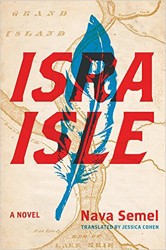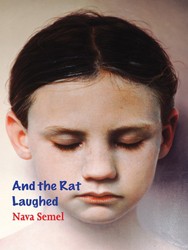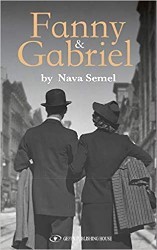Nava Semel is an Israeli writer, translator, and creative writing instructor. With the release of her new book, Isra-Isle, earlier this month from Mandel Vilar Press, Nava will be guest blogging for the Jewish Book Council all week as part of the Visiting Scribe series here on The ProsenPeople.
What if Jews had lived in greener pastures, on an idyllic, peaceful island, far away from the Middle-East? Perhaps we would have been the most docile of peoples, known around the globe for our tranquil nature, good manners, like the Biblical phrase—A Light Among the Nations.
In my novel Isra-Isle I recreated a Jewish state, inspired by the preceding Zion established by Mordechai Emanuel Noah, not Theodor Herzl. Noah was an earlier visionary who had bought “Grand Island” near Niagara Falls, financing the deal of his own pocket. In September 1825 he declared it a safe haven for the Jewish people and, since he was Noah, the name “Ararat” would be perfectly suitable. But his call was not answered; the Jews never came. This non-existing, imaginary Israel is my focus, a parallel universe where I can explore our alternative identity and ask a question that only authors are allowed to: “What if?”
In order to do that I had to obliterate the three components that are at the core of the Israeli identity, including mine. In this story, the Holocaust never happened to the Jews, because a fleet of rescue ships came from America to save them; the Palestinian conflict doesn’t exist, because there was no Zionist movement to encourage the Jews to go to their ancient biblical homeland in the Middle-East and get into trouble with the Arabs. And the third and — in my opinion — most important identity factor is the Hebrew language. In Isra-Isle it was never revived. The Jews on Isra-Isle speak English, Yiddish and Ladino — the Jewish language of the Diaspora. Hebrew is only taught in the Distinct Languages Department at the Ararat Niagara University.
So if these components are gone, what’s left? What kind of Isra-Islanders would we have been?
The destiny of any people is a direct outcome not only of their history but the place where they reside. Living for over 190 years under cloudy sky, cold weather, surplus of water, engulfed by green, eventually would have created a different kind of people, wrapped in furs and chasing turkeys, eating a cuisine concocted out of local ingredients such as pumpkin, fish, and berries. In my imagination, a bar mitzvah in Isra-Isle is sending each youth inducted into the Jewish nation sailing in a canoe towards the Great Falls, covered with a prayer shawl, decorated by feathers.
 In reality, Mordechai Emanuel Noah never set foot on the new homeland he chose for his people. How, then, dare he think he could determine Jewish destiny without scouting the location first? Herzl at least, visited Palestine. But his novel Altneuland is as much an unrealistic prophecy as my novel.
In reality, Mordechai Emanuel Noah never set foot on the new homeland he chose for his people. How, then, dare he think he could determine Jewish destiny without scouting the location first? Herzl at least, visited Palestine. But his novel Altneuland is as much an unrealistic prophecy as my novel.
How wonderful it is to play around with history, like a deck of cards, not necessarily placed in the right order. Is there a right order? Can we fix history and take responsibility of our fate, regardless of where we are?
I’m a product of Israel, for better or for worse. My identity was carved by a place chosen by my ardently Zionist parents who followed Herzl to a dangerous yellow desert, far away from Europe, where they were born. Hebrew is my true homeland, my cradle, my comfort, the language in which I dream and make love. How strange, even bizarre, it is to wipe it out from a book written in it. But perhaps such paradoxes are the only way for an artist to put their fingers on the things that often escape them and point to some hidden truth.
“I hope it won’t be an anti-Zionist book,” my late father said before he passed away. Rest assure, Dad, I wrote a hymn to the Israel I love.
Nava Semel holds an MA in Art History from Tel Aviv University and teaches creative writing at the Tel Aviv Public Library. Her previous books have been translated into 12 languages and received literary distinctions including a National Jewish Book Award for Children’s Literature in 1991.
Related Content:
- Adam Rovner: Where Should We Have Gone?
- Far from Zion: In Search of a Global Jewish Community by Charles London
- The Yiddish Policeman’s Union by Michael Chabon
Nava Semel is a writer and translator whose books have been published in 12 languages and received numerous literary honors, including a 1991 National Jewish Book Award for Children’s Literature. After working as a journalist, art critic, and producer for television, radio, and music, she now teaches creative writing at the Tel Aviv Public Library and serves on the Board of Directors for Massuah: The Institute for Holocaust Studies.




